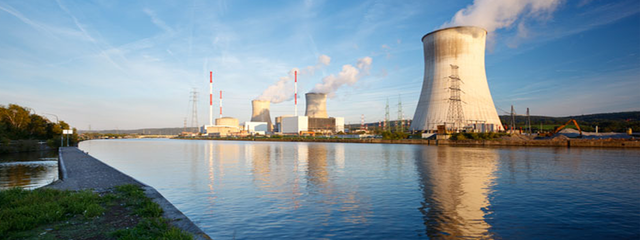[The Library Information Warfare] Sun Tzu and the Art of Critical Infrastructure Defense
[The Library Information Warfare] Sun Tzu and the Art of Critical Infrastructure Defense
What do Russia and Rome have in common?
They both lost their empire to, among other things, a supply chain that overgrew it's bounds. Sun Tzu appreciated this factor, saying in Art of War
秩序与无序之间的界限在于物流。
The line between order and disorder lies in logistics.
The fall of the Roman Empire is largely agreed to be attributed at least in large part to overexpansion. Indeed, the Soviet Empire can also be attributed to expanding beyond the limit of what they could reasonably manage, both in simple logistic terms and in terms of ideology. When one spreads limited resources wide, the blanket becomes thin.
Sun Tzu said many times to limit fighting as much as possible to conflicts that lay closer to one's supply line, preferring logistical superiority to long, dangerous excursions into enemy territory. Sun Tzu, as well as the majority of Chinese political minds, think of things in terms of Wei Qi, or Go as it is commonly called in the West. Wei Qi (围棋)is the Chinese counterpart to Chess, and relies upon the idea of surrounding the enemy using superior strategic maneuvering and cunning. Sun Tzu acknowledged that, as supply lanes extend into enemy territory, the probability of the lines being cut and units surrounded increases exponentially. The same concept obviously applies to military units obviously, but most military strategists treat this as obvious fact. Supply lines strategy, however, has a resounding importance in today's atmosphere.
Surrounding Critical Infrastructure: Cutting the Belly Out of the Beast
Putting our critical infrastructure online was a huge security oversight, regardless of the convenience. This essentially extended our supply line worldwide, while only offering the convenience to the intended audience. We allow ourselves to be outflanked by any enemy with an internet connection, going even further when one accounts for the possibility of an EMP device detonating and toasting our power grid. While an EMP is difficult to defend against, simple network segmentation, air-gapping critical network infrastructure, would be the same as placing our most important assets in an impenetrable fortress.
What is the price we paid for interconnectivity and convenience? In 2015, we saw the first successful attack against a power grid, shutting off power to roughly 230,000 Ukrainians for 1 to 6 hours. This is a relatively short time period, until one considers that, for 6 hours, a sovereign nation did not have control of their own power grid. In 2003, a power outage in North East US and South East Canada lead to 12 deaths. While the hype over a possible cyber attack was largely overblown and entirely false, the possibility still raised questions, and proved that critical infrastructure failure can be fatal.
We've extended our supply lines, without extending the benefits. In war, extending the supply lines allows for our armies to march into enemy territory. In this, we are extending our supply lines into enemy territory, without a military presence to supply. This strategically makes no sense, and recent studies showing the vulnerability in our critical infrastructure, as well as proven and successful attacks against critical infrastructure, shows that this strategic oversight is incredibly costly and increasingly dangerous. Interconnectivity allows for incredible convenience, but at the price of safety and security.
Sun Tzu predicted this thousands of years ago, basic Wei Qi strategy explains the prospect in full, but yet somehow the world has not yet learned.

there have been multiple small scale attacks on some of our own power plants over the last few years. Good material for a post for anyone that wanted to dig those up and link them ;>
good example of informationwar as a part of hybrid war
Curated for #informationwar
Relevance: Information War on the spectrum of war
The tag #informationwar, and posts that would be classified under that tag include methods of Information War, Propaganda, and Disinformation. The discussion would include governmental doctrine, historical application, Information War on the spectrum of warfare modes, recognition of fakenews, public OSINT, the concept of a Deep State and reaction to it, and critical thinking in analyzing these concepts.
By necessity, conspiracy theory can be discussed under this tag as they often address what many view as Deep State disinformation; this means that discussion of PizzaGate could fall under this discussion. However, I don't want to make this type of discussion the focus of the tag, but rather discussing these issues in terms of method
The ultimate purpose of InformationWar is to provide you with the tools to defend liberty within this mode of war.
In addition...it got colder, contributing to the fall of the Roman Empire.
I love your posts Odin! Please come back and post some more! These are vital strategies at an important time that we can all benefit from studying! Thanks!